Mid-South Glycoscience Meeting
Thursday, June 29, 2023
Thad Cochran Research Center
The University of Mississippi, Oxford, Mississippi
On behalf of the Organizing Committee, Prof. Samir Ross, the investigators, and the Core Directors of the Glycoscience Center of Research Excellence, I look forward to welcoming you to the annual Mid-South Glycoscience Meeting at the University of Mississippi scheduled for Thursday, June 29 2023, in Oxford, Mississippi. This conference will be held with both in-person and virtual attendance options.
The Mid-South Glycoscience Meeting is intended to bring together glycoscientists from across the region to share their work, learn more about our broad and rapidly growing field, and start new ties and new collaborations across disciplines. The Mid-South Glycoscience Meeting features research from investigators across our region, as well as bringing in exciting scientists from across the country to share their work and their insights. This meeting is hosted and sponsored by the Glycoscience Center of Research Excellence (GlyCORE), the region’s dedicated glycoscience research center. Established in 2020, GlyCORE houses staffed research cores with specialized instrumentation to support both our group of glycoscience investigators at the University of Mississippi, as well as glycoscientists across the Mid-South region.
The Organizing Committee intends for the Mid-South Glycoscience Meeting to be a collegial and welcoming event, both to support existing glycoscientists across the region as well as to serve as a useful introduction to the field for researchers and trainees. This year’s program will include researchers across many facets of glycoscience, from synthetic chemistry to glycobiology.
We hope you find this year’s program to be exciting and we look forward to welcoming you in-person or virtually to the Glycoscience Center of Research Excellence on the beautiful University of Mississippi campus.
Prof. Joshua Sharp, Director
Glycoscience Center of Research Excellence (GlyCORE)
Keynote Speakers
Umesh Desai Chair and Professor, Department of Medicinal Chemistry, Virginia Commonwealth University, Richmond, VA
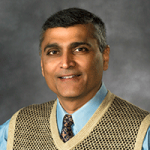
Umesh Desai is the Alfred Burger Professor of Medicinal and Biological Chemistry at Virginia Commonwealth University (VCU), Richmond, VA. He also serves as the Chair of the Department of Medicinal Chemistry in the School of Pharmacy at VCU. He received his doctorate from the Indian Institute of Technology, Bombay, India. Following postdoctoral and senior researcher experiences at University of Iowa, Massachusetts Institute of Technology, and University of Illinois, Chicago, he moved to VCU in 1998 where he has risen through the ranks to full professorship. He specializes in rational drug design with emphasis on glycosaminoglycan-based agents that function as anticoagulants, anticancer, antiviral and antiinflammatory agents. He has trained more than 50 students, postdocs and senior scientists, and collaborated with more than 20 biologists over the past 20 years that has resulted in more than 200 research publications. He received an Established Investigator Award from the American Heart Association (2006) and Distinguished Scholarship Award from VCU (2013).
Xuefei Huang, Professor and Associate Chair, Department of Chemistry, Michigan State University, East Lansing, MI
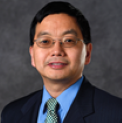 Dr. Huang is a full professor of chemistry and biomedical engineering at Michigan State University, and the Associate Chair for Research of the Department of Chemistry. He is a MSU Foundation Professor and a member of the Institute for Quantitative Health Science and Engineering. His research interests are mainly aimed at studying chemistry and biology of carbohydrates. A major focus is to develop new methodologies for the synthesis of complex glycans and glyco-conjugates. In addition, his group is actively investigating novel approaches to boost immune responses as next generation anti-cancer and anti-microbial vaccines. His group is also integrating carbohydrate chemistry with nanotechnology for molecular imaging and targeted drug delivery.
Dr. Huang is a full professor of chemistry and biomedical engineering at Michigan State University, and the Associate Chair for Research of the Department of Chemistry. He is a MSU Foundation Professor and a member of the Institute for Quantitative Health Science and Engineering. His research interests are mainly aimed at studying chemistry and biology of carbohydrates. A major focus is to develop new methodologies for the synthesis of complex glycans and glyco-conjugates. In addition, his group is actively investigating novel approaches to boost immune responses as next generation anti-cancer and anti-microbial vaccines. His group is also integrating carbohydrate chemistry with nanotechnology for molecular imaging and targeted drug delivery.
Fikri Avci, Associate Professor, Emory Vaccine Center, Associate Professor, Department of Biochemistry, Emory University, Atlanta, GA
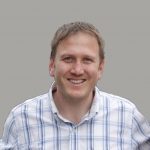
Fikri Avci is an Associate Professor of Biochemistry and a member of the Emory Vaccine Center, Winship Cancer Institute, and the Center for AIDS Research at the Emory University School of Medicine, where he joined the faculty in July 2022. Before that, he worked as an Assistant Professor (2013 – 2019) and Associate Professor (2019 – 2022) in the Department of Biochemistry and Molecular Biology at the University of Georgia. He completed his doctoral training at Rensselaer Polytechnic Institute and postdoctoral training at Harvard Medical School.
Avci Lab is an interdisciplinary research group at the interface of carbohydrate research and immunology. Our objective is to explore the treatment of and protection from infectious diseases and cancer by understanding key molecular and cellular interactions between the immune system components and carbohydrate antigens associated with microbes or cancers.
Ryan A. Flynn Assistant Professor, Boston Children’s Hospital and Harvard Department of Stem Call and Regenerative Biology, Harvard University, Cambridge, MA
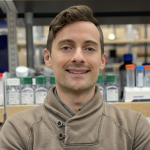
Ryan is a New Jersey native who completed his undergraduate training at MIT, where he worked in the lab of Phillip Sharp on small noncoding RNA biology. Subsequently he moved to Stanford where he completed his M.D. and Ph.D. with Howard Chang developing methods to study RNA-protein interactions. From this work, he won the Weintraub Graduate Student Award. As a post-doc he changed fields to learn both chemistry and glycobiology with Carolyn Bertozzi at Stanford as a Damon Runyon Cancer Research Postdoctoral Fellow. At the beginning of 2021, the Flynn Lab opened at Boston Children’s Hospital in the Stem Cell Program and the Department of Stem Cell and Regenerative Biology at Harvard University. The Flynn Lab is currently focused on advancing methods and mechanisms surrounding the glycoRNA molecule, which operates at the interface of RNA biology and the secretory pathway.
Jessica Kramer, Assistant Professor, Department of Biomedical Engineering, College of Engineering, The University of Utah, Salt Lake City, UT
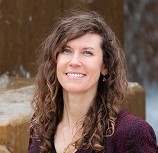
Jessica Kramer joined the Department of Bioengineering at the University of Utah in January, 2017. She obtained an Honors B.S. in Chemistry from the University of Utah, where she performed undergraduate research in the lab of Prof. C. Dale Poulter. She then worked in industry for Echelon Biosciences Inc. synthesizing phosphoinositide and isoprenoid compounds and related assay products. Dr. Kramer began graduate studies in the lab of Prof. Tim Deming in UCLA’s Chemistry Department and obtained her Ph.D. in 2012. Her studies were partially funded by an NSF training grant. In 2013, she joined the lab of Prof. Carolyn Bertozzi at UC Berkeley and Stanford as an NIH Postdoctoral Fellow and a UC Chancellor’s Postdoctoral Fellow.
The Kramer Lab applies synthetic polypeptides to address unmet medical needs, and to probe the structure and function of unique natural proteins. Her research efforts have been recognized with numerous awards including an NSF CAREER award, the international Dream Chemistry Award, the Henkel Award for Outstanding Graduate Research in Polymer Chemistry, Norma Stoddart Prize, Saul and Sylvia Winstein Dissertation Award, Excellence in Graduate Polymer Research Award, and even presented an experiment for former Utah Governor and US presidential candidate John M. Huntsman.
Jeffrey D. Esko, Distinguished Professor, Department of Cellular and Molecular Medicine, University of California, San Diego, School of Medicine, San Diego, CA
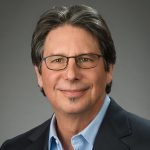
Jeffrey D. Esko, Ph.D., M.D. (h.c) is a Distinguished Professor of Cellular and Molecular Medicine (cmm.ucsd.edu) and was a founding Director of the Glycobiology Research and Training Center (grtc.ucsd.edu) at the University of California, San Diego. Dr. Esko received his Ph.D. in Biochemistry at the University of Wisconsin in Madison. After an independent fellowship at the Molecular Biology Institute at the University of California, Los Angeles, he moved to the University of Alabama at Birmingham in 1983 as an Assistant Professor and then as a full Professor to the Department of Cellular and Molecular Medicine at the University of California, San Diego in 1996 to help build a program in glycosciences.
Work in his laboratory focuses on the structure, biosynthesis, and function of proteoglycans. Current work includes the application of genome-wide methods to identify novel genes involved in glycosaminoglycan assembly; studies focused on treatments for enzyme replacement therapy; studies of proteoglycans in viral and bacterial infection; and studies of proteoglycan-associated receptors with particular emphasis on the vasculature and infection (eskolab.ucsd.edu). He has published over 300 scholarly papers, reviews and book chapters and was editor/author of the first textbook in the field, Essentials of Glycobiology, which is now in its 4th edition. He is also a devoted educator, having developed several courses in the glycosciences and training a large cohort of graduate students and post-doctoral fellows over the last four decades.
His work is supported by grants from the National Institutes of Health, the National Science Foundation and the private sector. Dr. Esko has served on the numerous editorial boards and scientific boards including the Journal of Biological Chemistry, 1991-1996; the Journal of Cell Biology, 2008-present; and as Associate Editor, Glycobiology, 1999-2004, and 2010-present. He was past President of the Society for Glycobiology and past Director of the Biomedical Sciences Graduate Program at UCSD (biomedsci.ucsd.edu). He cofounded Zacharon Pharmaceuticals, Inc (acquired by Biomarin in 2012), TEGA Therapeutics, Inc. and Covicept Therapeutics, Inc. His work has been recognized by the Karl Meyer Award, the highest honor from the Society for Glycobiology, the IGO award from the International Glycoconjugate Organization, a MERIT Award from the National Institutes of Health, an honorary medical degree from the University of Uppsala and was elected as a Fellow of the American Association for the Advancement of Science. You can learn more about his work and his lab at eskolab.ucsd.edu.
